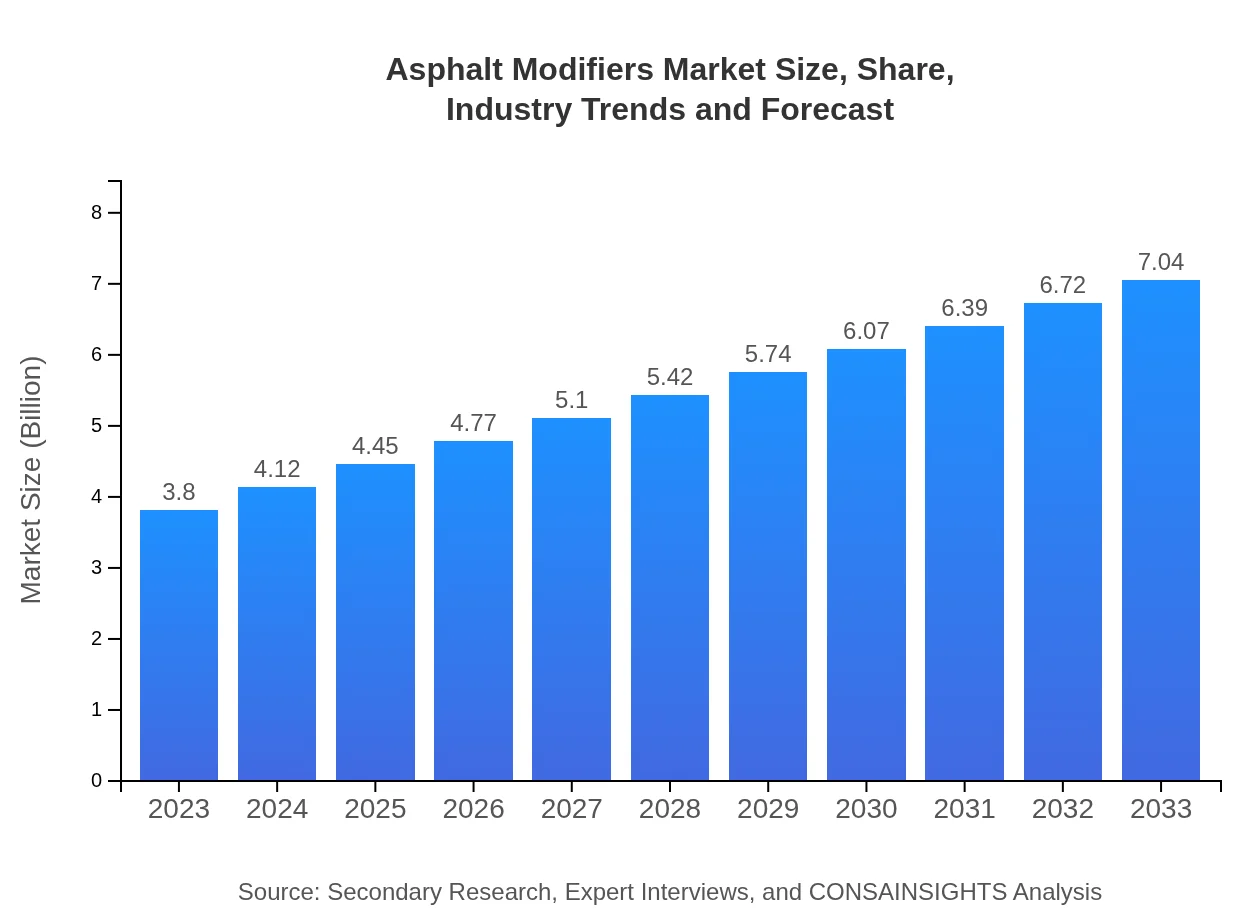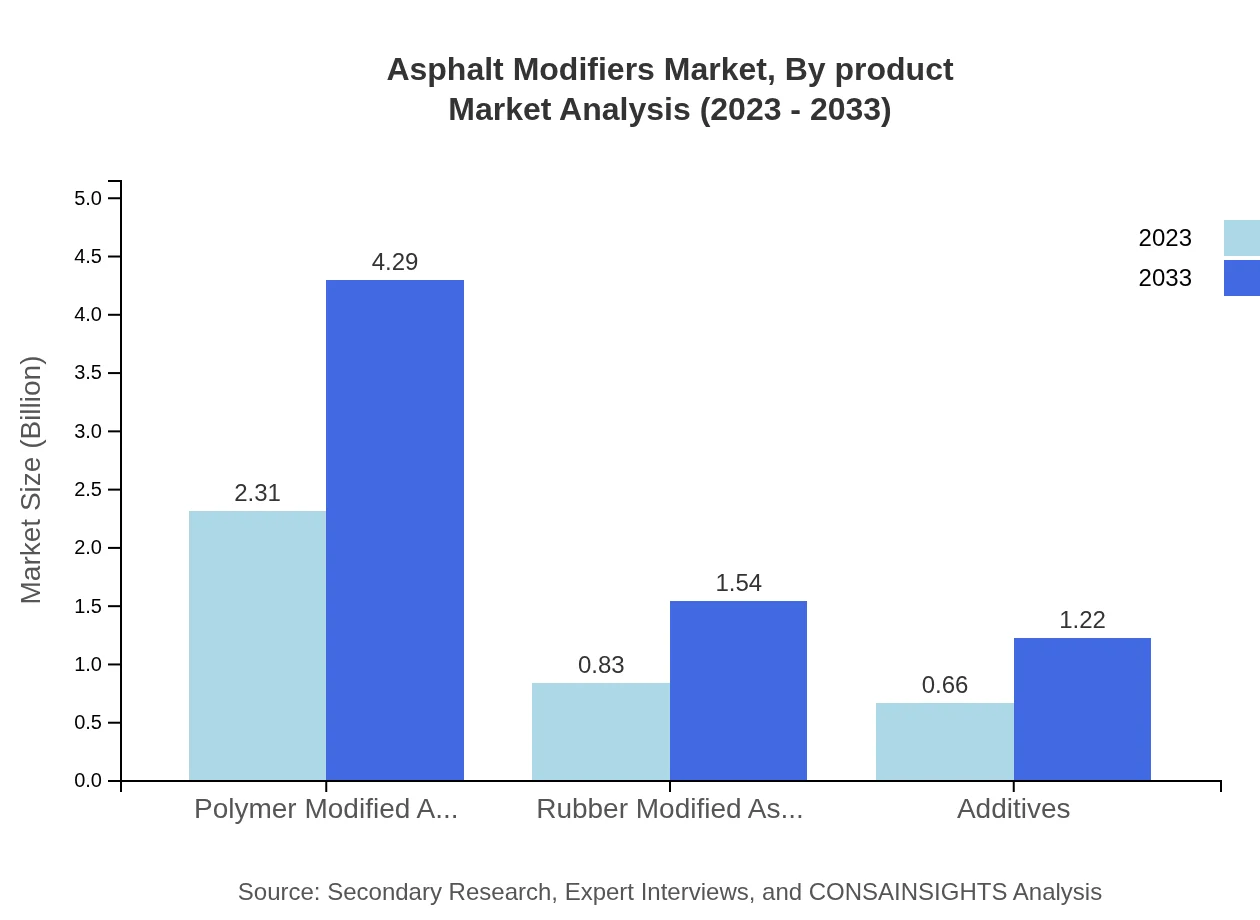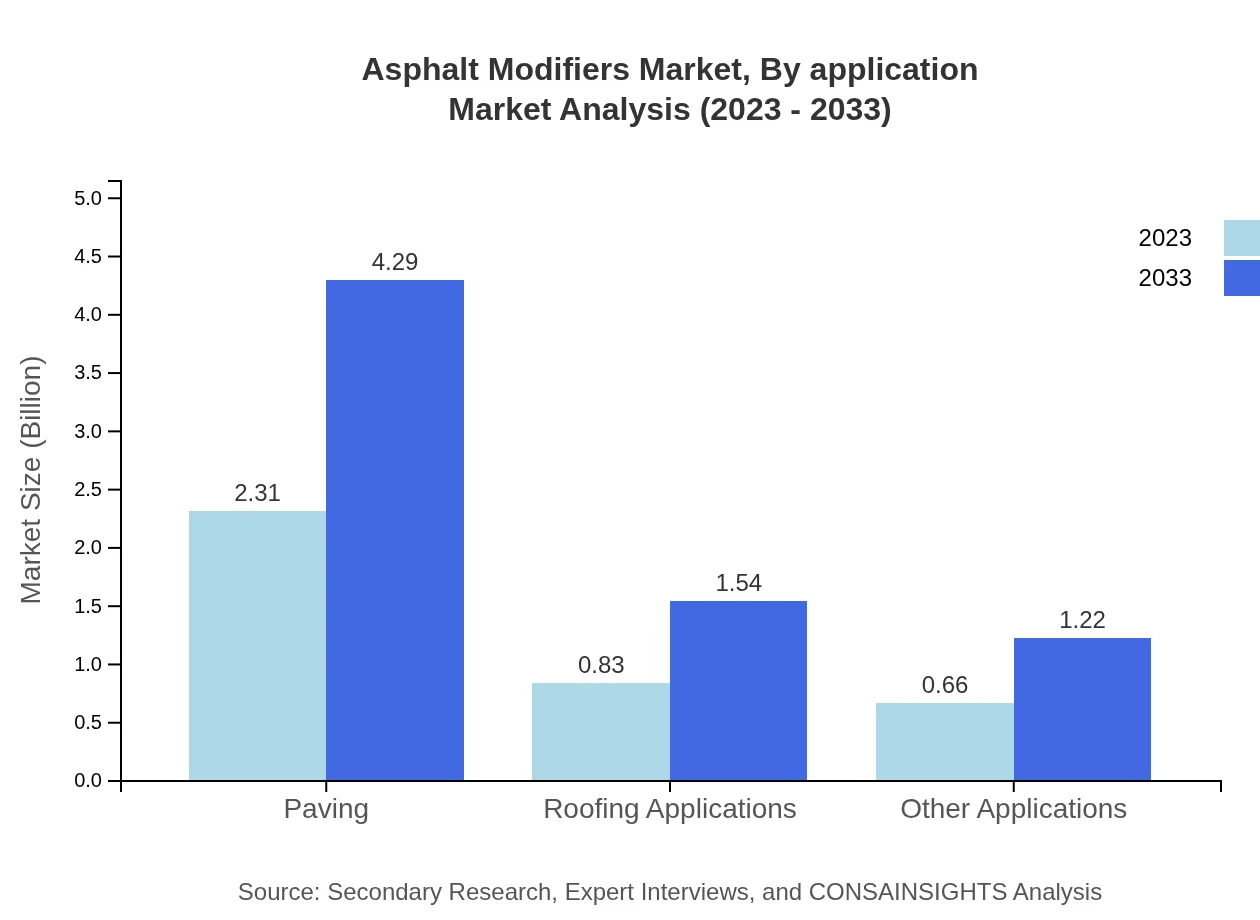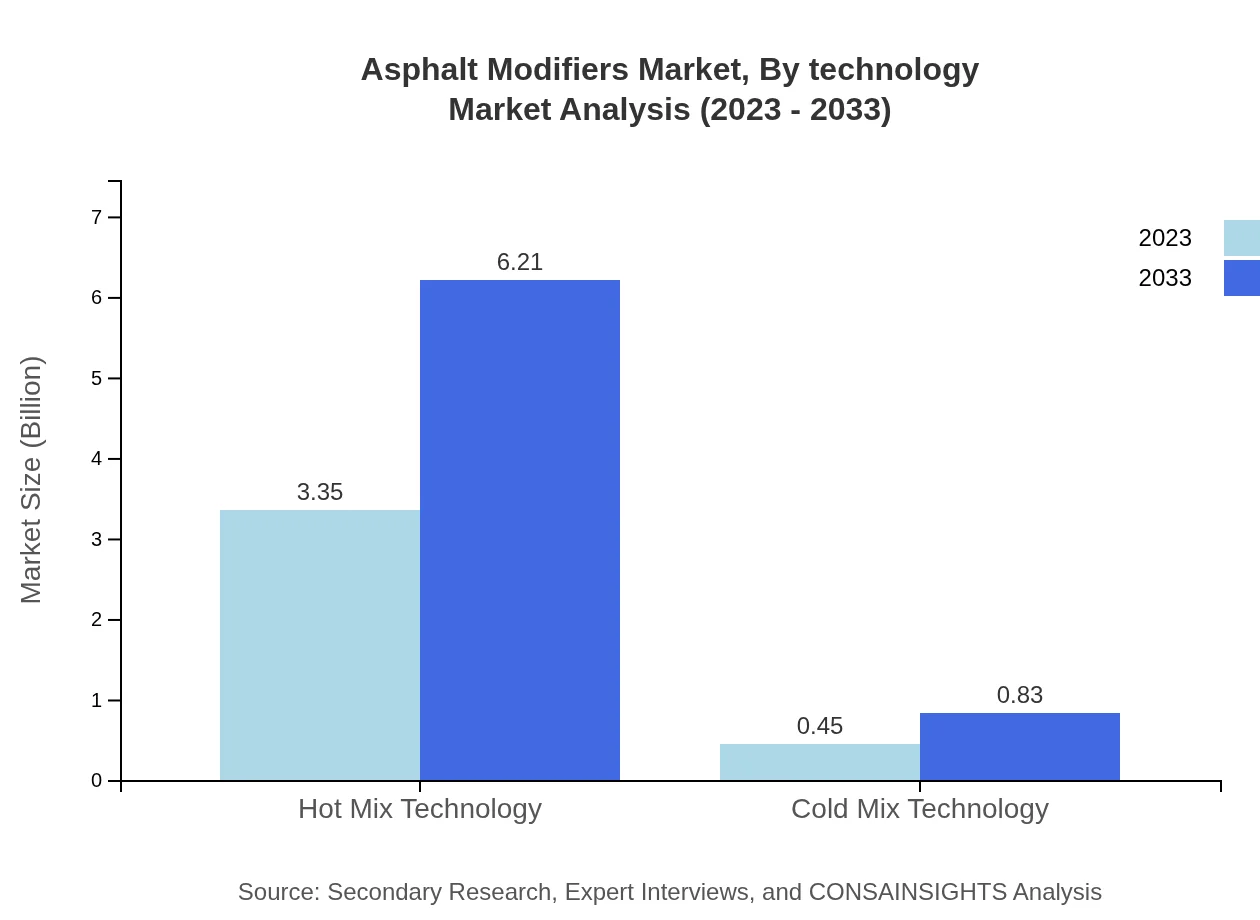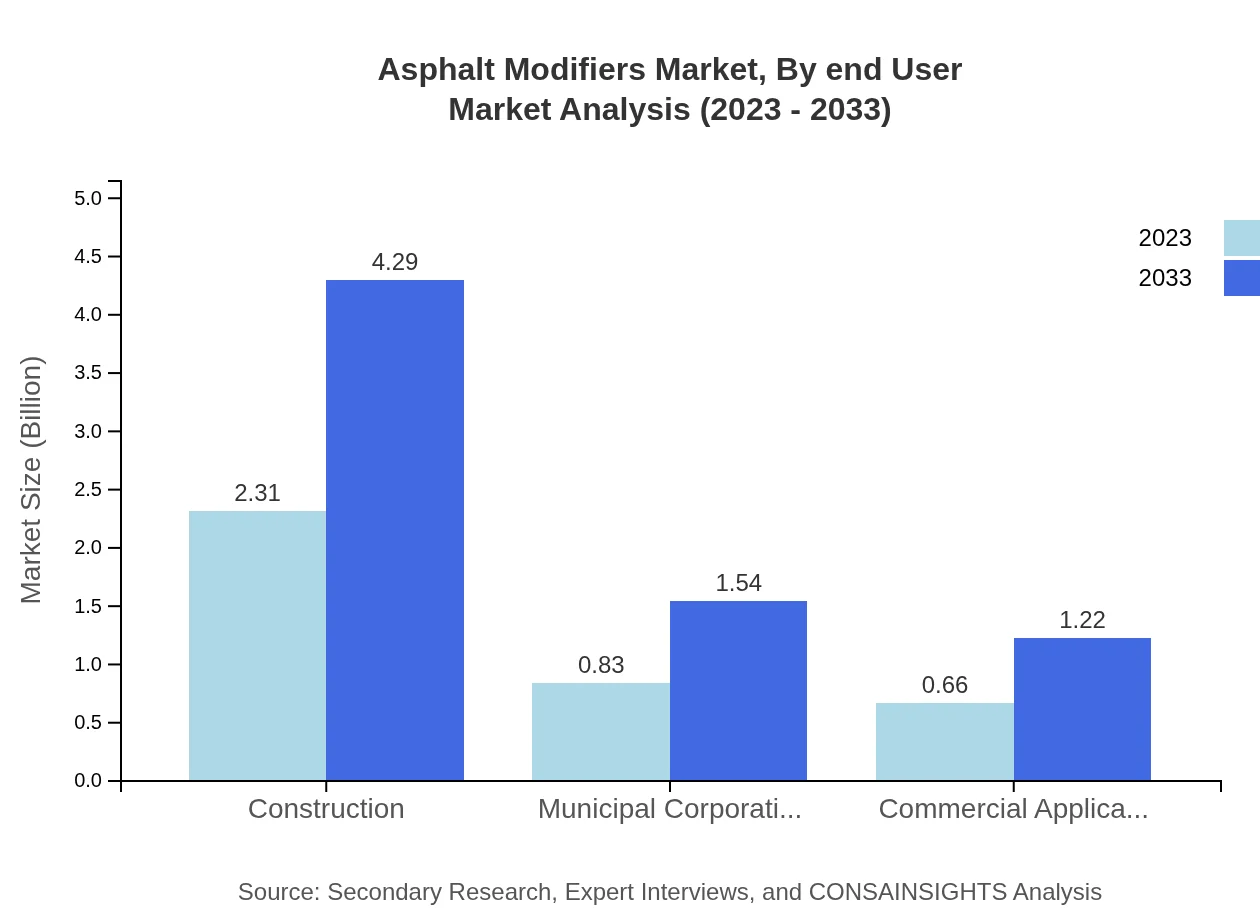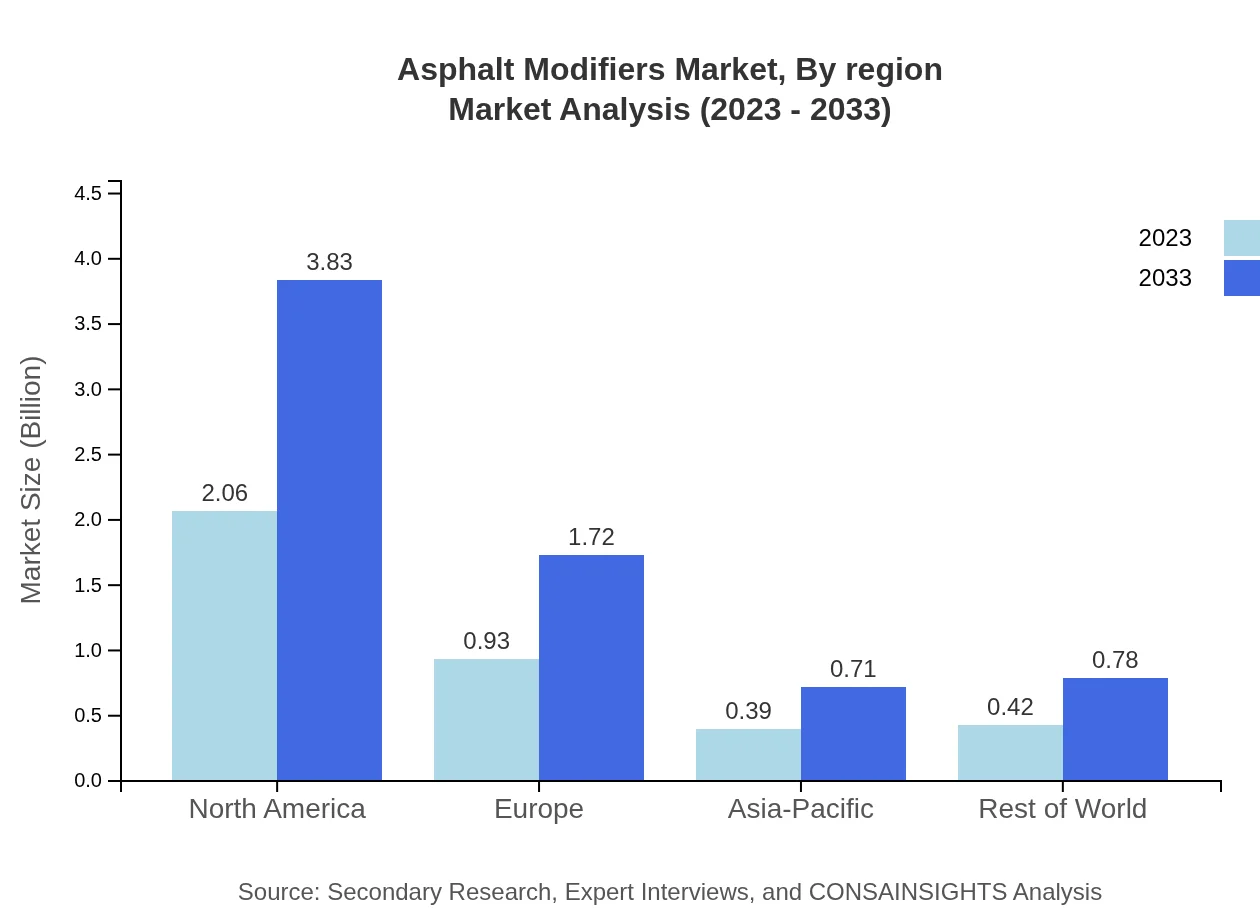Asphalt Modifiers Market Report
Published Date: 02 February 2026 | Report Code: asphalt-modifiers
Asphalt Modifiers Market Size, Share, Industry Trends and Forecast to 2033
This report provides an in-depth analysis of the Asphalt Modifiers market from 2023 to 2033, covering market size, growth patterns, regional insights, industry trends, and key players to offer valuable insights for stakeholders and decision-makers.
| Metric | Value |
|---|---|
| Study Period | 2023 - 2033 |
| 2023 Market Size | $3.80 Billion |
| CAGR (2023-2033) | 6.2% |
| 2033 Market Size | $7.04 Billion |
| Top Companies | Shield-Lok, Asphalt Industries Inc., BASF SE, Sika AG, DuPont |
| Last Modified Date | 02 February 2026 |
Asphalt Modifiers Market Overview
Customize Asphalt Modifiers Market Report market research report
- ✔ Get in-depth analysis of Asphalt Modifiers market size, growth, and forecasts.
- ✔ Understand Asphalt Modifiers's regional dynamics and industry-specific trends.
- ✔ Identify potential applications, end-user demand, and growth segments in Asphalt Modifiers
What is the Market Size & CAGR of Asphalt Modifiers market in 2023 and 2033?
Asphalt Modifiers Industry Analysis
Asphalt Modifiers Market Segmentation and Scope
Tell us your focus area and get a customized research report.
Asphalt Modifiers Market Analysis Report by Region
Europe Asphalt Modifiers Market Report:
In Europe, the market is projected to expand from $0.99 billion in 2023 to $1.84 billion by 2033. The enforcement of sustainability regulations and a growing preference for high-performance asphalt solutions underline the region's market dynamics.Asia Pacific Asphalt Modifiers Market Report:
In the Asia Pacific region, the Asphalt Modifiers market is anticipated to grow from $0.82 billion in 2023 to $1.52 billion by 2033. The rapid urbanization and infrastructural development in countries like India and China are primary drivers, alongside increasing vehicle ownership rates necessitating improved road surfaces.North America Asphalt Modifiers Market Report:
North America will witness growth from $1.38 billion in 2023 to $2.55 billion by 2033, with the U.S. leading in technology adoption and innovation. High investments in infrastructure maintenance, coupled with stringent governmental regulations on road quality, are key stimulants for this growth.South America Asphalt Modifiers Market Report:
The South American market exhibits steady growth, transitioning from $0.23 billion in 2023 to $0.43 billion by 2033. This growth is supported by government initiatives to enhance regional infrastructure and boost economic activity through better transportation networks.Middle East & Africa Asphalt Modifiers Market Report:
The Middle East and Africa region's market is expected to grow from $0.38 billion in 2023 to $0.70 billion by 2033. Investments in non-oil infrastructure projects drive demand for asphalt modifiers, reflecting broader economic diversification efforts across the region.Tell us your focus area and get a customized research report.
Asphalt Modifiers Market Analysis By Product
The Asphalt Modifiers market is dominated by Polymeric Modified Asphalt (PMA), which is expected to reach a market size of $4.29 billion by 2033, capturing approximately 60.92% market share. Rubber Modified Asphalt (RMA) follows, projected to grow to $1.54 billion, holding a 21.82% share. Additives, including specific chemicals enhancing performance, are also gaining traction and are anticipated to reach a market value of $1.22 billion.
Asphalt Modifiers Market Analysis By Application
Construction applications account for the majority share of the market, with a projection of $4.29 billion in 2033, indicating a share of 60.92%. Municipal applications are also significant, growing to a notable size of $1.54 billion by 2033. The commercial sector is capitalizing on the versatility of asphalt modifiers, projected to reach $1.22 billion.
Asphalt Modifiers Market Analysis By Technology
The Hot Mix Technology holds a commanding presence in the market with a projected size of $6.21 billion by 2033, representing an 88.2% market share. Cold Mix Technology, while smaller, is growing steadily and expected to reach $0.83 billion.
Asphalt Modifiers Market Analysis By End User
The construction industry remains the primary end-user of asphalt modifiers, with projected growth to $4.29 billion by 2033, indicating a persistent market share at 60.92%. The roofing sector is also rising, with an expected increase to $1.54 billion.
Asphalt Modifiers Market Analysis By Region
The regional breakdown shows North America leading in size at $2.55 billion, followed by Europe at $1.84 billion and Asia-Pacific at $1.52 billion. Each region's dynamics are driven by unique factors, including innovation, urbanization, and regulatory frameworks.
Asphalt Modifiers Market Trends and Future Forecast
Tell us your focus area and get a customized research report.
Global Market Leaders and Top Companies in Asphalt Modifiers Industry
Shield-Lok:
A leading provider of innovative asphalt modifier solutions focusing on sustainability and high-performance products.Asphalt Industries Inc.:
Known for its diversified product range and significant contributions to urban infrastructure development and sustainability.BASF SE:
A chemical giant engaged in advanced polymer technology for asphalt modification, focusing on durability and eco-friendliness.Sika AG:
Offers high-performance additives and modifiers to improve the resilience and longevity of asphalt.DuPont:
Provides a range of asphalt modifiers with a strong emphasis on innovation and sustainable commercial applications.We're grateful to work with incredible clients.









FAQs
What is the market size of asphalt Modifiers?
The asphalt-modifiers market is valued at approximately $3.8 billion in 2023, with a expected CAGR of 6.2% from 2023 to 2033, signaling strong growth driven by urbanization and infrastructure development.
What are the key market players or companies in this asphalt Modifiers industry?
Key players in the asphalt-modifiers industry include renowned companies like BASF SE, The Dow Chemical Company, and CRH plc. These companies dominate the market with advanced technologies and innovative products, catering to construction and infrastructure sectors.
What are the primary factors driving the growth in the asphalt Modifiers industry?
Several factors drive the growth of the asphalt-modifiers industry, including increasing demand for high-performance pavements, rising urbanization, and the need for durable roads. Additionally, government investments in infrastructure projects contribute significantly.
Which region is the fastest Growing in the asphalt Modifiers?
The fastest-growing region in the asphalt-modifiers market is North America, projected to grow from $1.38 billion in 2023 to $2.55 billion by 2033, reflecting significant infrastructure development and rising demand in construction.
Does ConsaInsights provide customized market report data for the asphalt Modifiers industry?
Yes, ConsaInsights offers customized market report data tailored to specific needs in the asphalt-modifiers industry. Clients can request detailed insights based on unique business requirements and market dynamics.
What deliverables can I expect from this asphalt Modifiers market research project?
Deliverables from the asphalt-modifiers market research project include comprehensive market analysis, growth forecasts, competitive landscape reports, and segments data. Clients receive actionable insights to guide strategic decision-making.
What are the market trends of asphalt Modifiers?
Current market trends in asphalt-modifiers show a shift towards sustainable materials and advanced technologies such as polymer and rubber modified asphalts. Increasing focus on eco-friendly construction practices also drives innovation in this field.

